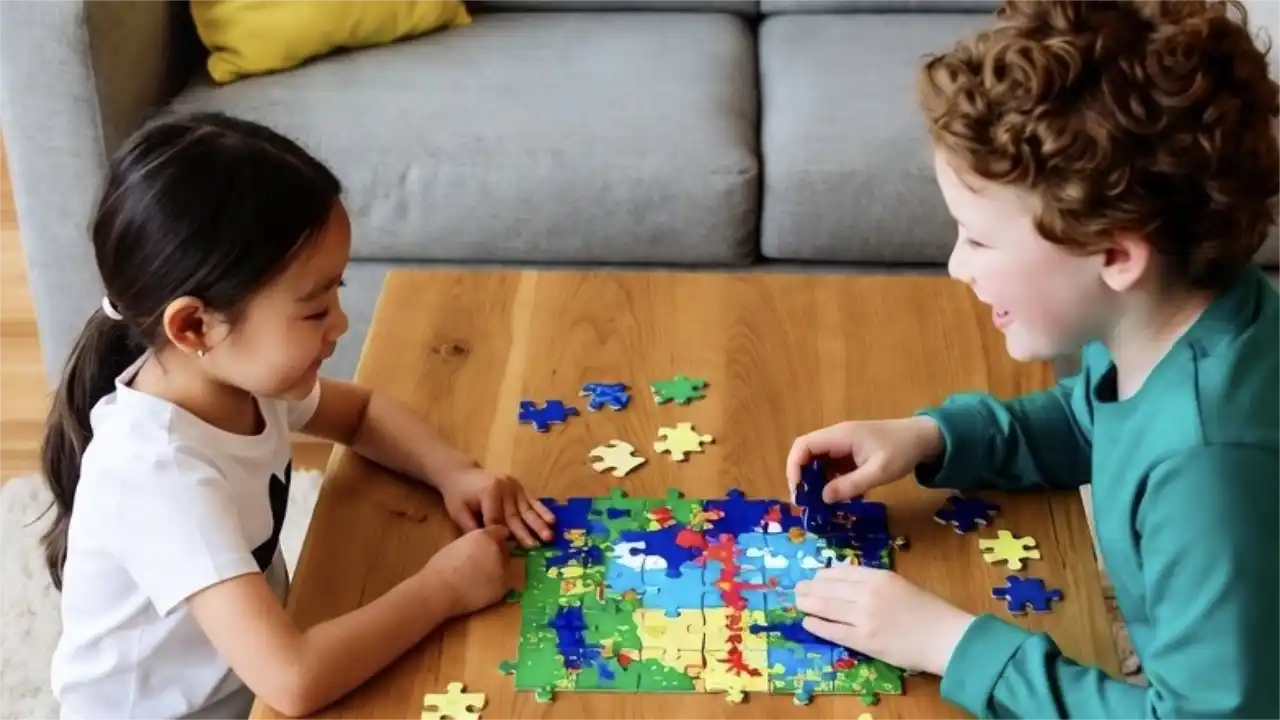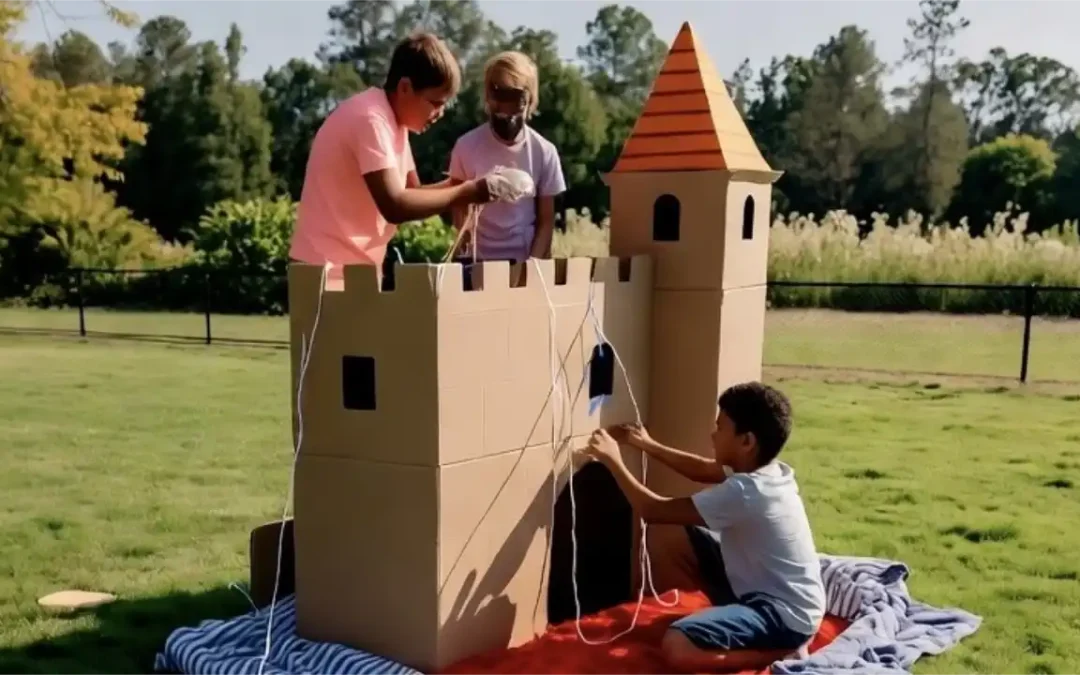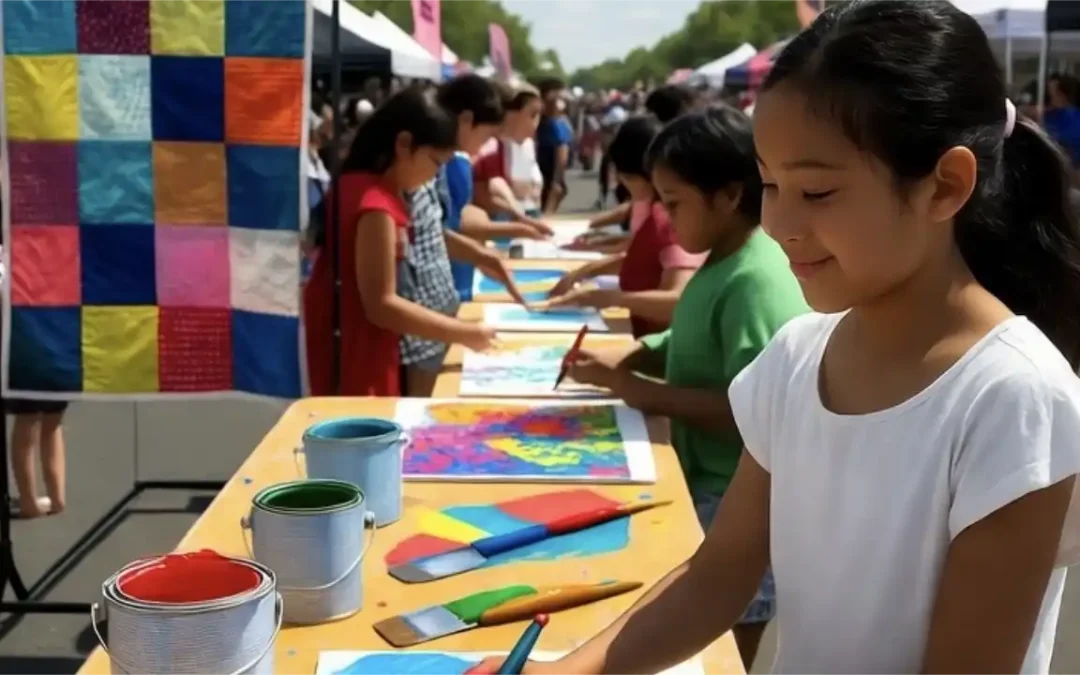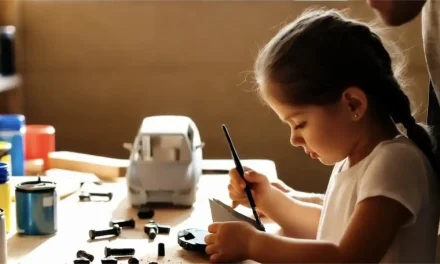
Connecting with the Community: Balance Competition and Teamwork
R
ivalry can light a fire in children—but it can also burn bridges if not handled with care. One rainy afternoon, I set up a puzzle challenge between my son and daughter. At first, they competed fiercely—pieces flying, frustration mounting. Then I suggested they join forces. The tension shifted. They laughed, swapped strategies, and finished faster together than either could alone. That shift from opponents to allies helped them discover that winning isn’t always about finishing first—it’s about solving problems together.
Later, my daughter used the same mindset in a group science project, inviting a classmate to merge ideas rather than compete for credit. Meanwhile, my son helped a peer with a coding bug during a club event, remembering how it felt to be stuck and then helped. These small experiences—playful but real—taught them to toggle between competition and cooperation, depending on the moment. They began to see that success often comes not from outperforming others, but from working with them.
You can model this by blending friendly competition with shared goals. Organize games where your child starts solo, then teams up—racing toy cars, building bridges, solving scavenger hunts. Ask afterward, “What changed when you worked together?” Let them reflect on what each person contributed. These habits build emotional agility and teamwork—skills vital not only for school but for navigating a world that increasingly values collaboration over one-upmanship.
Connecting with the Community

Connecting with the Community: Create with Friends
Collaborative making teaches communication and teamwork. Invite children to create with friends and build shared joy through projects.

Connecting with the Community: Join Creative Groups or Festivals
Group creativity builds confidence and connection. Explore clubs, festivals, and events where children can share ideas and learn from others.
Table of contents

Primordial Soup for the Mind: Navigation
Navigate the book Primordial Soup for the Mind.
TIPS
- Plan contests like races or craft challenges.
- Praise their teamwork to show you value their work.
- Mix competition and collaboration weekly.
- Ask “How can you help each other?” to start ideas.
ACTIVITIES
- Car Race: Make cars, ask, “How can you help each other?” Race for 15 minutes.
- Kite Build: Build kites, talk about their designs, 20 minutes.
EXAMPLE
My daughter raced kites, saying, “Ours is fast!” Her designs started a crafting hobby.

Download “Primordial Soup for the Mind: A Parent’s Guide to Nurturing Intellectual Growth”
Enter your information to get this article and hundreds more as part of the FREE book Primordial Soup for the Mind.
Share your thoughts with the Thought Academy community in the Comments section below.

Sharpen those skills!
Enter your information to get our FREE practice exercises so you can hone your critical thinking and reasoning skills!







0 Comments